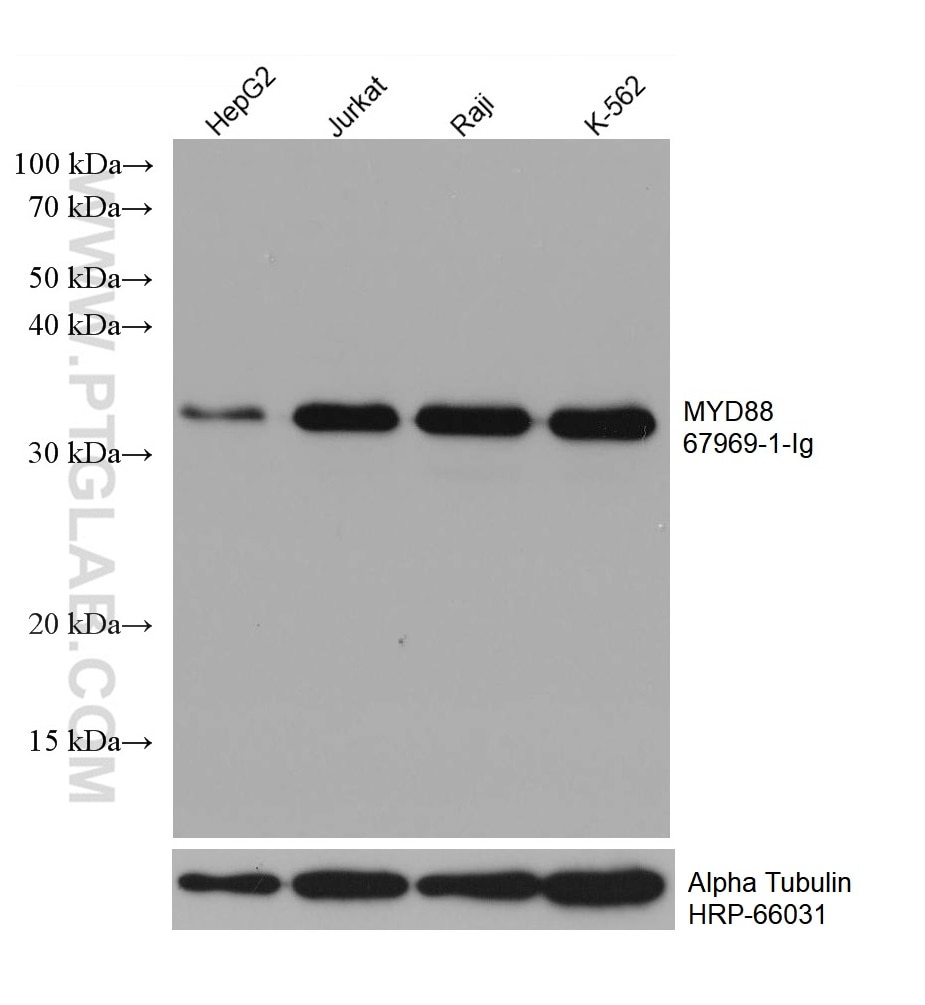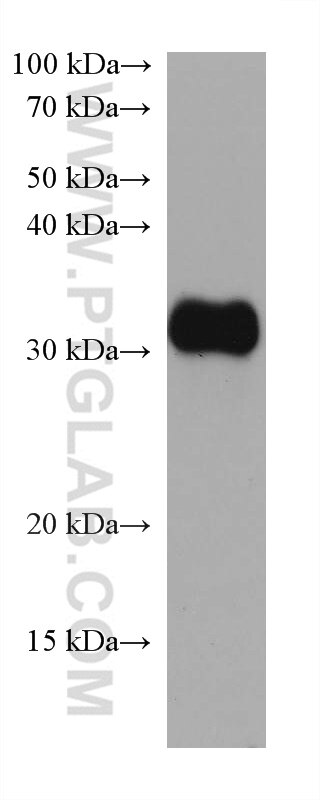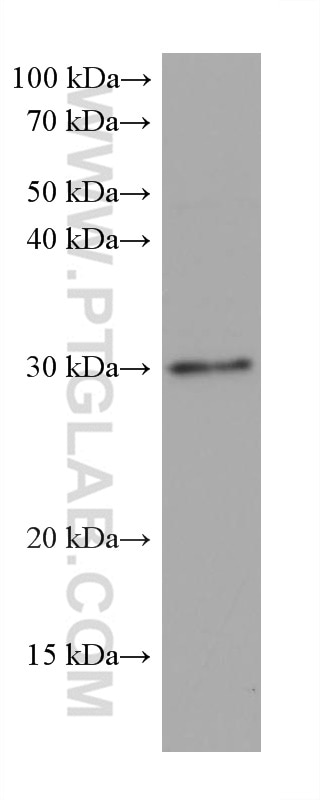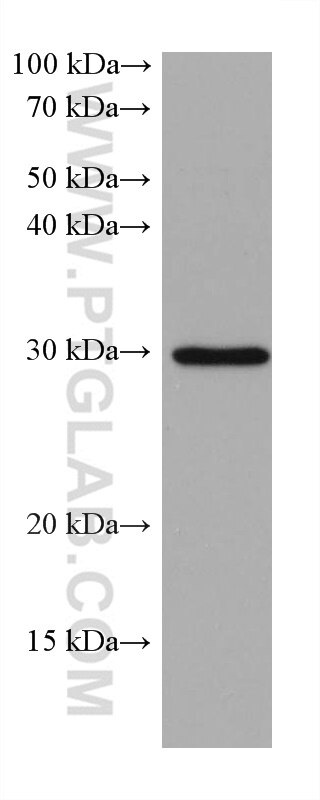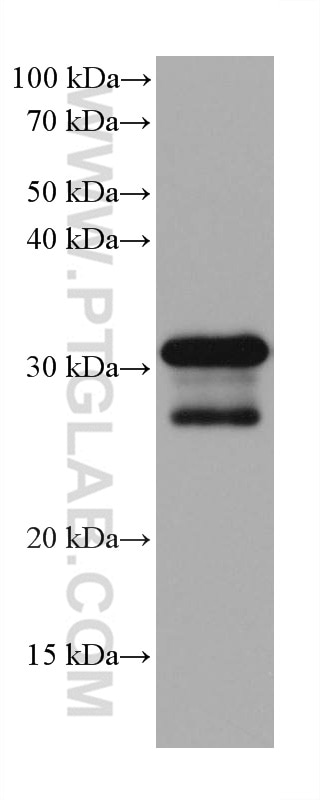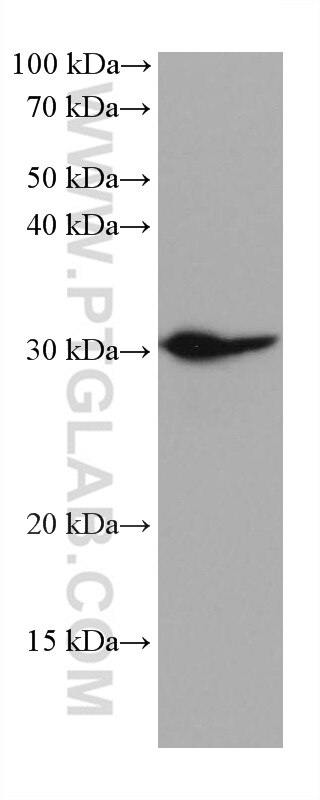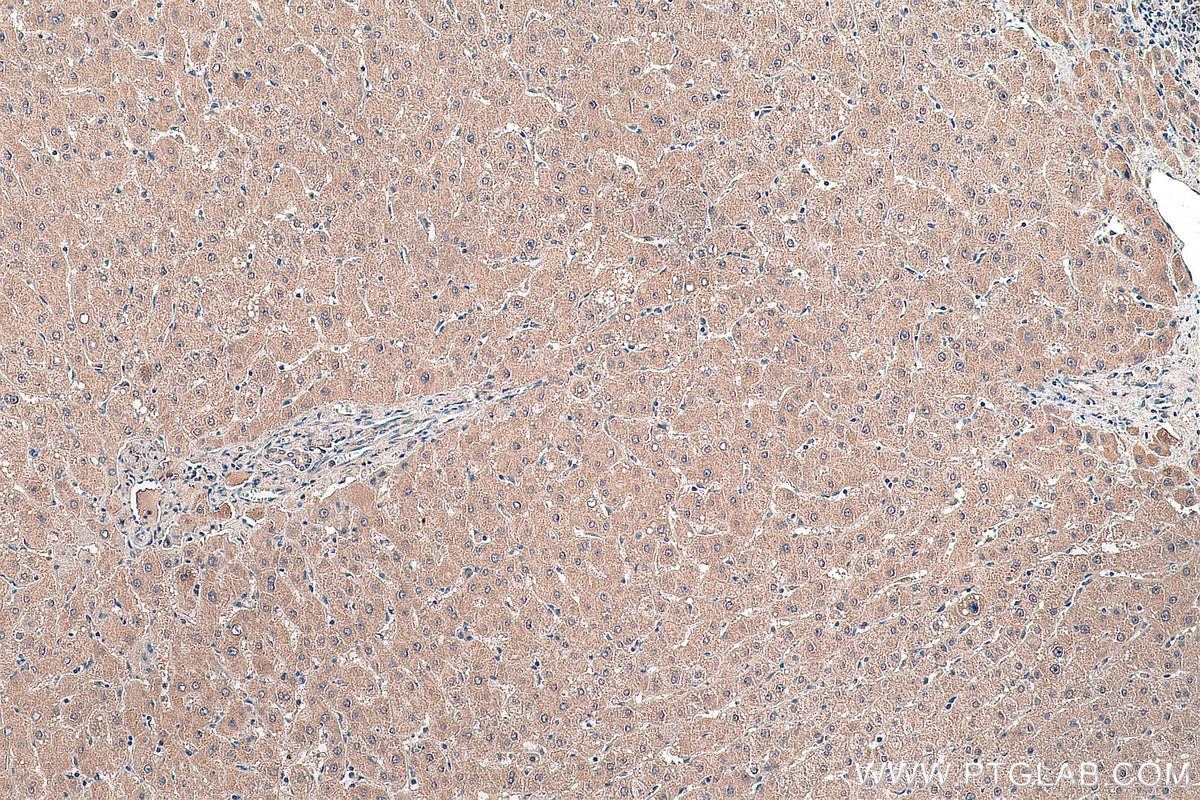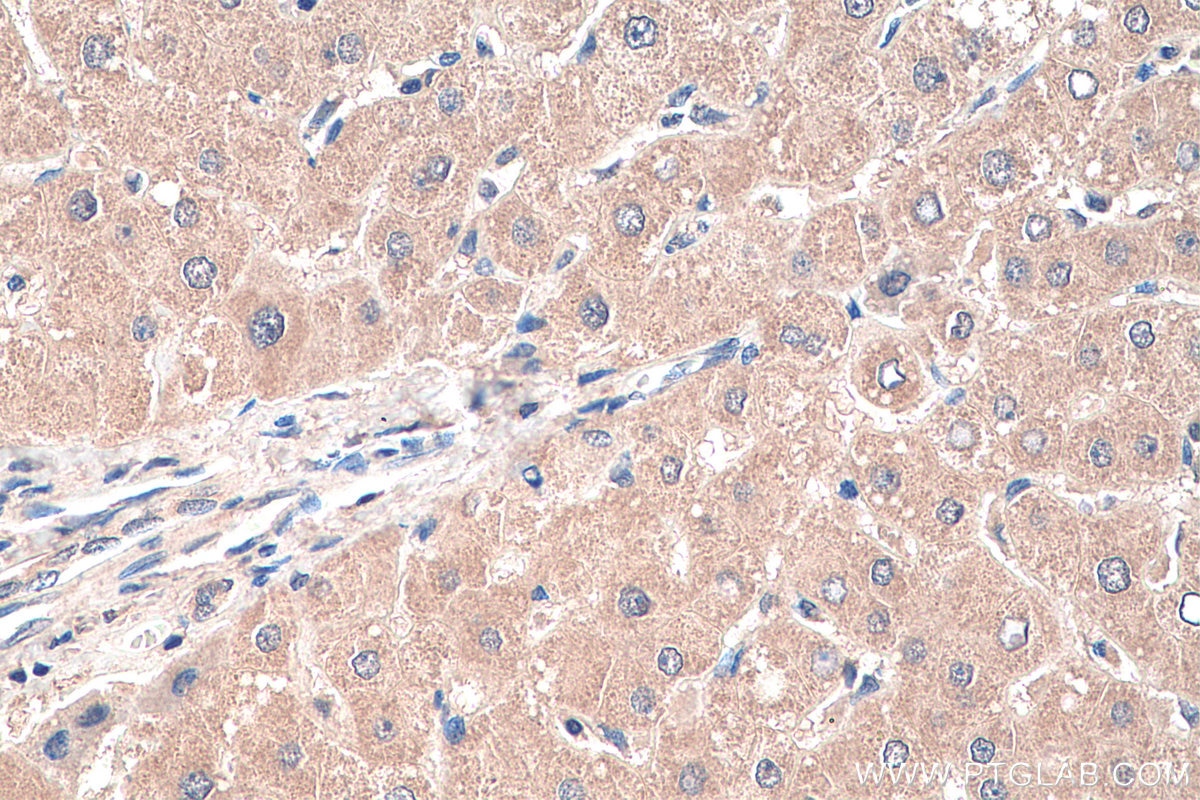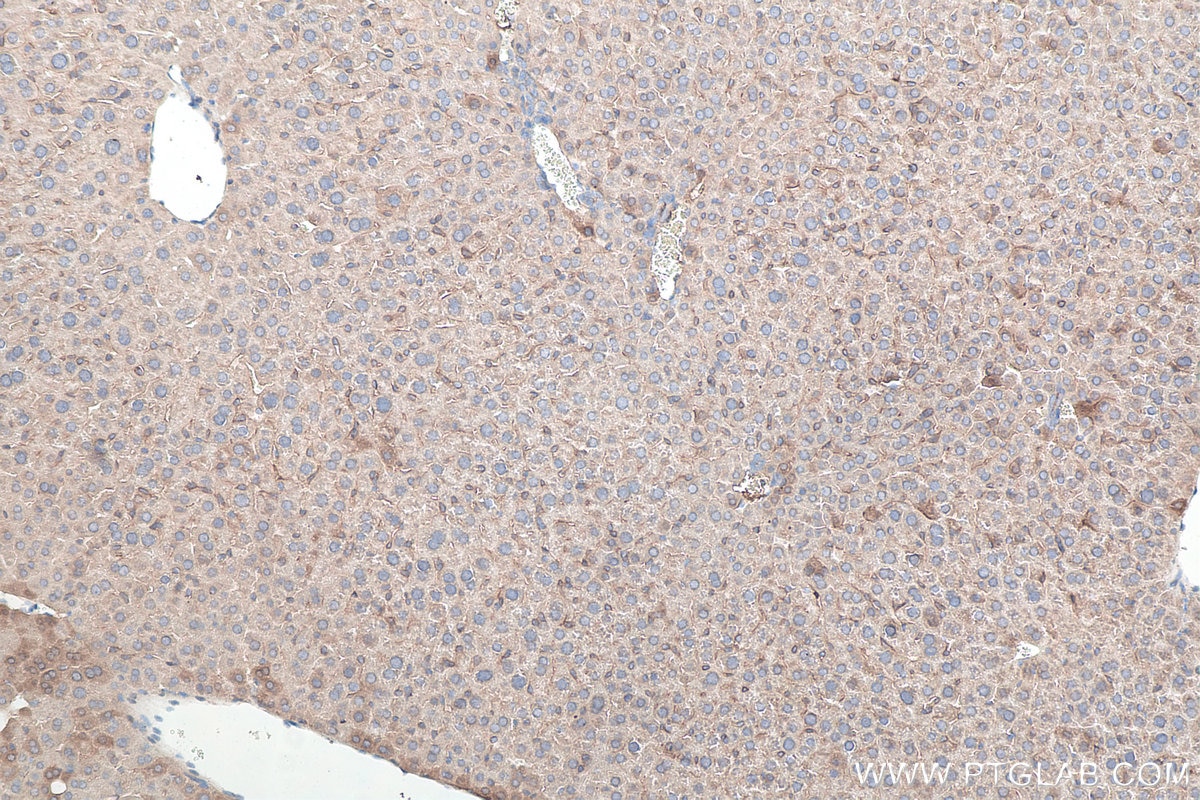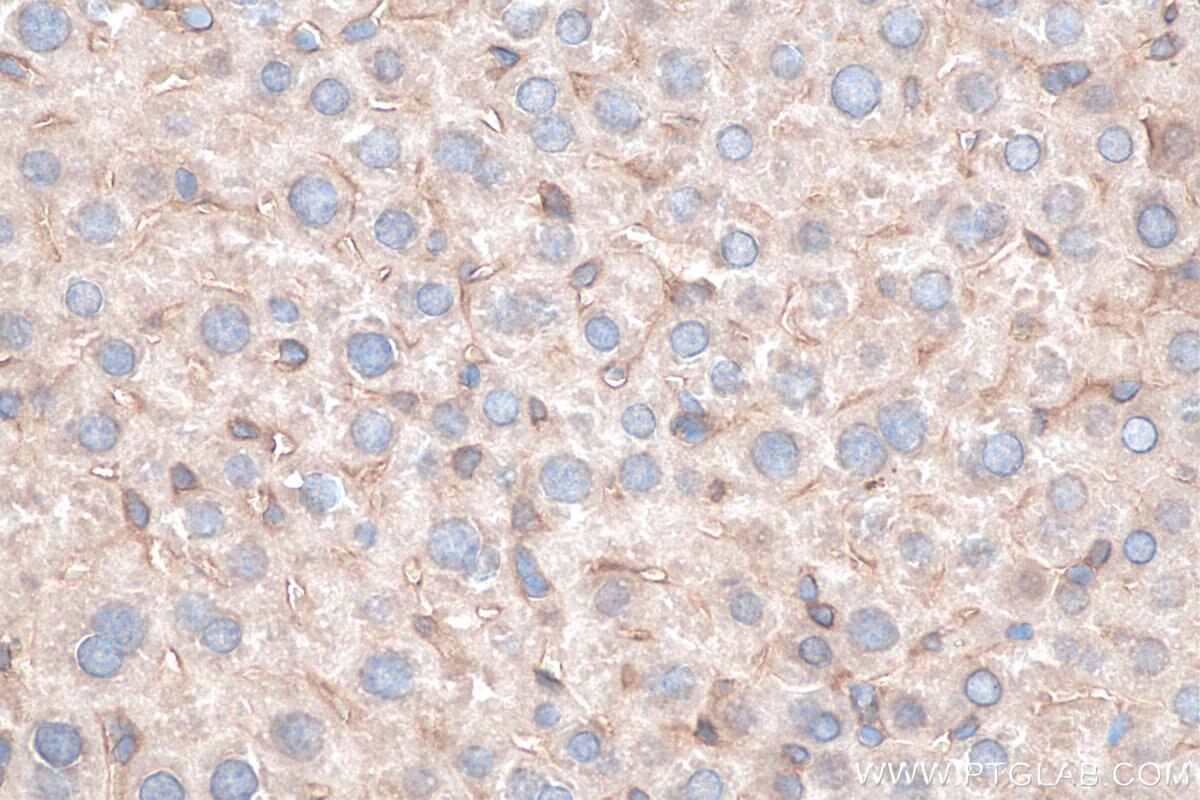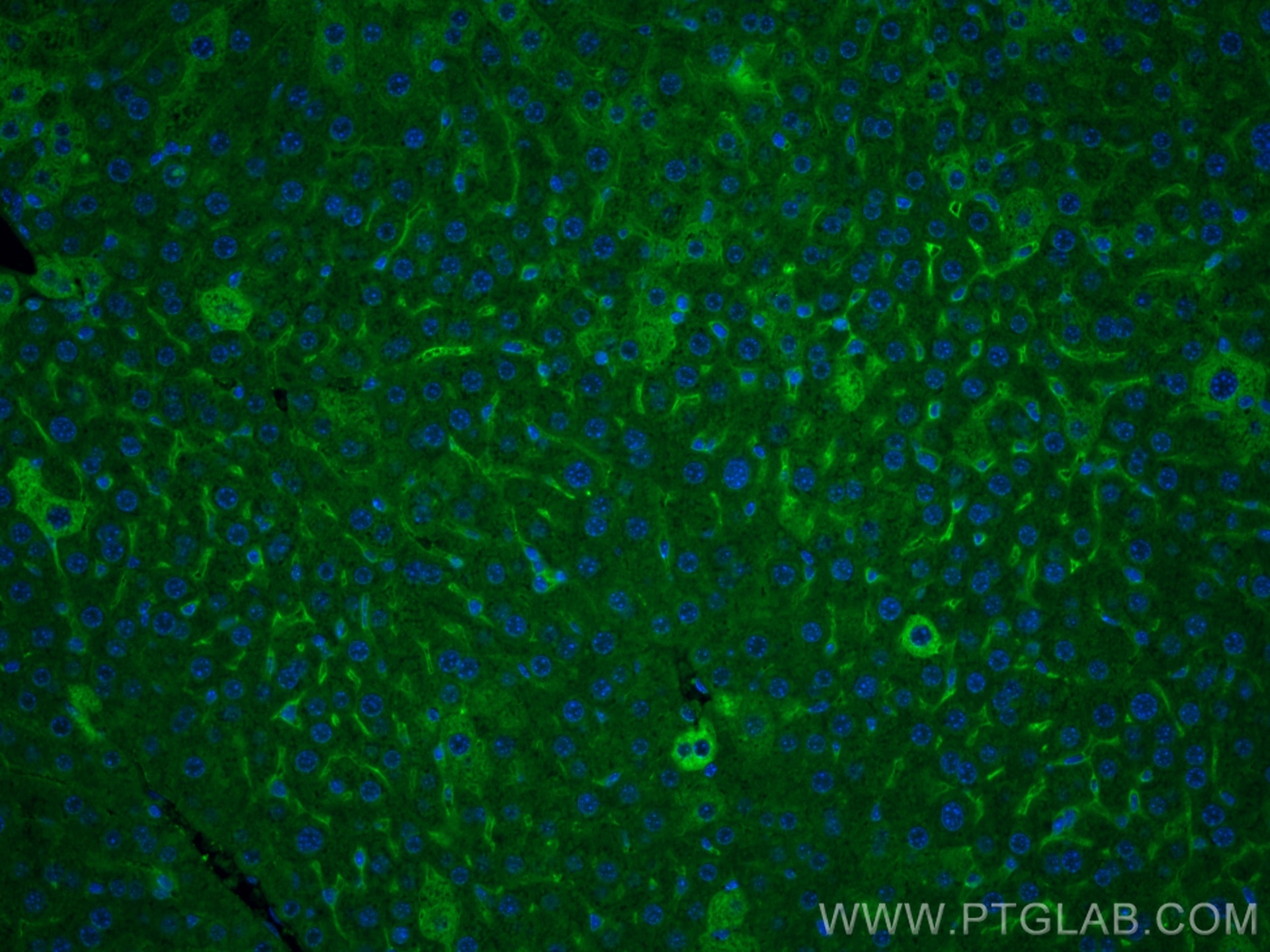Anticorps Monoclonal anti-MYD88
MYD88 Monoclonal Antibody for IF, IHC, WB, ELISA
Hôte / Isotype
Mouse / IgG2b
Réactivité testée
Humain, Lapin, porc, rat, souris
Applications
WB, IHC, IF, ELISA
Conjugaison
Non conjugué
CloneNo.
2E10D3
N° de cat : 67969-1-Ig
Synonymes
Galerie de données de validation
Applications testées
| Résultats positifs en WB | cellules HepG2, cellules HL-60, cellules HSC-T6, cellules Jurkat, cellules K-562, cellules NIH/3T3, cellules Raji, tissu splénique de lapin, tissu splénique de porc |
| Résultats positifs en IHC | tissu hépatique humain, tissu hépatique de souris il est suggéré de démasquer l'antigène avec un tampon de TE buffer pH 9.0; (*) À défaut, 'le démasquage de l'antigène peut être 'effectué avec un tampon citrate pH 6,0. |
| Résultats positifs en IF | tissu hépatique de souris, |
Dilution recommandée
| Application | Dilution |
|---|---|
| Western Blot (WB) | WB : 1:2000-1:10000 |
| Immunohistochimie (IHC) | IHC : 1:250-1:1000 |
| Immunofluorescence (IF) | IF : 1:200-1:800 |
| It is recommended that this reagent should be titrated in each testing system to obtain optimal results. | |
| Sample-dependent, check data in validation data gallery | |
Applications publiées
| WB | See 21 publications below |
| IHC | See 1 publications below |
| IF | See 1 publications below |
Informations sur le produit
67969-1-Ig cible MYD88 dans les applications de WB, IHC, IF, ELISA et montre une réactivité avec des échantillons Humain, Lapin, porc, rat, souris
| Réactivité | Humain, Lapin, porc, rat, souris |
| Réactivité citée | rat, Humain, souris |
| Hôte / Isotype | Mouse / IgG2b |
| Clonalité | Monoclonal |
| Type | Anticorps |
| Immunogène | MYD88 Protéine recombinante Ag27659 |
| Nom complet | myeloid differentiation primary response gene (88) |
| Masse moléculaire calculée | 33 kDa |
| Poids moléculaire observé | 33 kDa |
| Numéro d’acquisition GenBank | BC013589 |
| Symbole du gène | MYD88 |
| Identification du gène (NCBI) | 4615 |
| Conjugaison | Non conjugué |
| Forme | Liquide |
| Méthode de purification | Purification par protéine A |
| Tampon de stockage | PBS avec azoture de sodium à 0,02 % et glycérol à 50 % pH 7,3 |
| Conditions de stockage | Stocker à -20°C. Stable pendant un an après l'expédition. L'aliquotage n'est pas nécessaire pour le stockage à -20oC Les 20ul contiennent 0,1% de BSA. |
Informations générales
MYD88 is a cytosolic adapter protein that plays a central role in the innate and adaptive immune response. MYD88 is the key adaptor protein for the interleukin-1 receptor (IL-1R) and most Toll-like receptors (TLRs), which are essential for innate immunity and pathogen-associated molecular pattern recognition. Mutations in the MyD88 gene lead to the development of cancer in humans and mice suggesting that MyD88 also plays a cell autonomous role in tissue homeostasis.
Protocole
| Product Specific Protocols | |
|---|---|
| WB protocol for MYD88 antibody 67969-1-Ig | Download protocol |
| IHC protocol for MYD88 antibody 67969-1-Ig | Download protocol |
| IF protocol for MYD88 antibody 67969-1-Ig | Download protocol |
| Standard Protocols | |
|---|---|
| Click here to view our Standard Protocols |
Publications
| Species | Application | Title |
|---|---|---|
J Control Release Controlled extracellular vesicles release from aminoguanidine nanoparticle-loaded polylysine hydrogel for synergistic treatment of spinal cord injury | ||
Inflammation Chlorogenic Acid Alleviates Hepatic Ischemia-Reperfusion Injury by Inhibiting Oxidative Stress, Inflammation, and Mitochondria-Mediated Apoptosis In Vivo and In Vitro | ||
Front Bioeng Biotechnol Polyvinylpyrrolidone-Modified Taxifolin Liposomes Promote Liver Repair by Modulating Autophagy to Inhibit Activation of the TLR4/NF-κB Signaling Pathway. | ||
Biomater Adv Monosodium urate crystals with controlled shape and aspect ratio for elucidating the pathological progress of acute gout. | ||
Nutrients Hawk Tea Flavonoids as Natural Hepatoprotective Agents Alleviate Acute Liver Damage by Reshaping the Intestinal Microbiota and Modulating the Nrf2 and NF-κB Signaling Pathways | ||
Int J Mol Sci Methyl Gallate Alleviates Acute Ulcerative Colitis by Modulating Gut Microbiota and Inhibiting TLR4/NF-κB Pathway |
